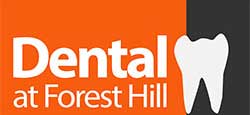Wisdom Teeth Woes
Sometimes called the third molars, history these teeth as a disease tell a history that is truly wise, let alone causing an ache when they emerge. Even as for some people, they do not cause any problems, for many, these teeth can be a problem, which causes pain and may lead to other complications in their dental health. But what if you have chosen to run your course bare and do not indulge in extraction? Perhaps now it is appropriate to ponder the potential outcome.
Wisdom teeth, or third molars, can cause pain and dental issues. Even if they don't bother everyone, it's important to consider the risks of not removing them.
The Trouble with Wisdom Teeth
Third molars are also known as wisdom teeth and develop between the age of seventeen and twenty-five. Nonetheless, our jaws have evolved to be smaller and this often means that there is limited space in which these teeth can develop. This misalignment can lead to a host of dental problems, including:
- Impaction: Wise teeth are those that become embedded under the gum or the bone they are called impacted teeth. This brings pain, swelling and infection levels that can be severe according to the type of injury experienced.
- Crowding: Dental problems such as overcrowding of teeth, misalignments and bad bites are the result of penetration of the third molars against the existing teeth.
- Damage to Adjacent Teeth: Wisdom teeth: If they erupt partially or are impacted, they result in the decay or damage of the neighbouring teeth.
- Cysts and Tumours: Wisdom teeth are known to cause cysts or tumours in a few cases, which leads to an attack on both the bone and the teeth.
- Gum Disease: Two main issues arise from partially erupted or impacted wisdom teeth – food trap and periodontal diseases; these are as follows;
Long-Term Implications
Thus, the problems with the creative teeth are not just a minor discomfort that should be avoided, there are some serious consequences that can happen if a person neglects the symptoms of the injury. You may be able to imagine how uncomfortable it is to suffer from such symptoms as chronic pain, chewing problems or bad breath. Further, these problems have wide-ranging implications that extend to various aspects of human health and welfare – for instance, sleep and appetite, self-image, and the like.
In some cases, neglecting wisdom teeth can lead to more severe complications, such as:
- Infection: The third molars or wisdom teeth may remain partially or fully embedded in the gum and cause infections which may lead to formation of abscess.
- Damage to Jawbone: Another severe conventional form of the impacted wisdom tooth is that it injures the nearby bone tissue.
- Difficulty with Dental Procedures: Wisdom teeth can hinder other dental treatments, such as braces or orthodontics.
When to Consider Removal
In a case where you have some kind of discomfort in the region of the wisdom teeth then you should see a dentist. It allows them to assess your circumstances and advise you as to what to do in any particular case. Often, the only procedure that will guarantee the non-occurrence of these issues is extraction in this area of the mouth.
However, the decision to remove the wisdom teeth is yours to make but before you can make the decision you need to weigh the pros as well as the cons of the surgery. Knowing the effects which could arise out of disregard of the wisdom tooth problems, you make a good choice for your oral health.


